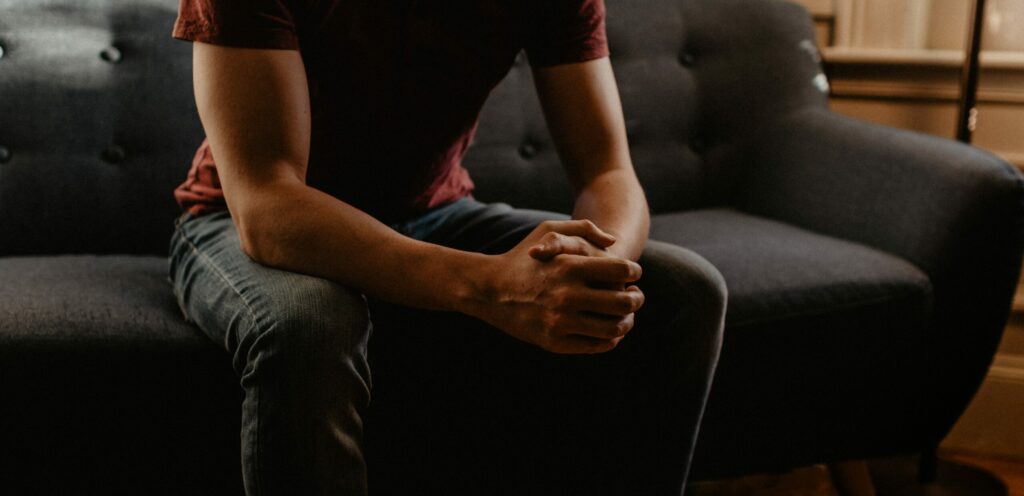If you have been prescribed benzos and you are curious about the effects and risks of this class of medication, read on for answers to all your benzodiazepine FAQs.
What Is Benzodiazepine?
Benzodiazepine (benzo), is a class of psychoactive drugs that affect the CNS (central nervous system). They work by enhancing the activity of GABA (gamma-aminobutyric acid), a neurotransmitter or chemical messenger that inhibits brain activity. This results in a calming or sedative effect, meaning that benzodiazepines are commonly prescribed for medical conditions like anxiety disorder, panic disorder, insomnia, seizures, and muscle spasms. Despite their therapeutic benefits, benzodiazepines can be strongly habit-forming, and prolonged use or misuse may lead to the development of dependence and addiction. Only use these medications under the guidance of a healthcare professional.
Need help getting addiction treatment?
Is Ambien a benzodiazepine?
No, Ambien (zolpidem) is not a benzodiazepine. It belongs to a different class of drugs known as sedative hypnotics and is commonly prescribed for the short-term treatment of insomnia.
Is trazodone a benzodiazepine?
No, trazadone is not a benzodiazepine. It is an antidepressant that is also sometimes used off-label for its sedative effects, especially for treating insomnia.
Is Xanax a benzodiazepine?
Yes, Xanax (alprazolam) is a benzodiazepine. It is commonly indicated to treat anxiety disorders and panic disorders due to its calming effect on the CNS (central nervous system).
Is Lexapro a benzodiazepine?
No, Lexapro (escitalopram) is an antidepressant from the SSRI (selective serotonin reuptake inhibitor) class. It is prescribed to treat depression and anxiety.
Is Zoloft a benzodiazepine?
No, Zoloft (sertraline) is not a benzodiazepine. It is an SSRI used to treat depression and anxiety.
Is Ativan a benzo?
Yes, Ativan (lorazepam) is a benzodiazepine that is often prescribed to treat panic disorders, insomnia, and seizures.
Is Klonopin a benzo?
Yes, Klonopin (clonazepam) is a benzodiazepine. The long-acting benzo is used to treat certain anxiety disorders, panic disorders, and seizures.
Is gabapentin a benzodiazepine?
No, gabapentin is not a benzodiazepine. It is an anticonvulsant medication used to treat neuropathic pain and seizures.
How do benzodiazepines work?
Benzodiazepines work by helping a chemical called GABA to do its job better in the brain. GABA is like a calming messenger, and when benzos team up with it, they can slow down brain activity. It’s like putting the brakes on, increasing relaxation and decreasing anxiety. This is why doctors might prescribe them to help with things like anxiety disorder or trouble sleeping.
What are benzodiazepines used for?
Benzodiazepines are medicines used to help with various conditions. They are commonly prescribed to:
- Reduce anxiety: Benzodiazepines can help calm the mind and reduce feelings of anxiety and stress.
- Treat insomnia: Some benzodiazepines are used to aid sleep and treat insomnia by promoting relaxation.
- Relieve muscle spasms: They can help relax muscles, providing relief from muscle spasms and tension.
- Control seizures: Benzodiazepines are sometimes used to manage seizures by calming overactive brain activity.
- Ease alcohol withdrawal: In certain situations, benzodiazepines may be prescribed to help manage symptoms during alcohol withdrawal.

Are Benzodiazepines Addictive?
Yes, benzodiazepines can be addictive. While they are effective in managing various conditions, prolonged or improper use may lead to dependence. Dependence means that your body becomes used to the medication, and stopping it suddenly can result in withdrawal symptoms. Only use benzodiazepines as prescribed by your healthcare provider to minimize the risk of addiction. If you have concerns about dependence or addiction, discuss them with your doctor for guidance and support.
How Is Benzodiazepine Dependence Treated?
Treating benzodiazepine dependence involves a careful and gradual process to minimize withdrawal symptoms and help people safely discontinue use. Here are common approaches:
- Tapering off: Doctors often create a tapering schedule, gradually reducing the benzodiazepine dosage over time. This helps the body adjust slowly, minimizing withdrawal effects.
- Supportive therapy: Behavioral therapies and counseling can be beneficial during the withdrawal process. They provide emotional support and teach coping strategies to manage anxiety or other symptoms.
- Medication-assisted treatment: In some cases, medications may be used to streamline the withdrawal process. These medications can help alleviate withdrawal symptoms and support a smoother transition.
- Monitoring and follow-up: Regular medical check-ups are essential during benzodiazepine withdrawal. Healthcare providers monitor progress, address concerns, and make necessary adjustments to the treatment plan.
Seek professional guidance if you or someone you know is considering stopping benzodiazepine use. Abrupt discontinuation can lead to severe withdrawal symptoms, and a gradual, supervised approach is recommended for a safer and more successful outcome.

Get Treatment for Benzo Addiction at Renaissance Recovery
If you or a loved one needs help recovering from benzo addiction, reach out to Renaissance Recovery in Southern California.
Engaging with a medical detox program enables you to withdraw from benzodiazepines safely and comfortably under close supervision. A tapered reduction in dosage will streamline the intensity of the withdrawal process, preparing you for ongoing outpatient treatment at our luxury beachside facility.
All Renaissance Recovery programs deliver a personalized blends of therapies that might include:
- Psychotherapies (CBT and DBT)
- MAT (medication-assisted treatment)
- Holistic treatments
- Group therapy
- Individual counseling
- Family therapy
- Aftercare planning
Call the friendly admissions team at 866.330.9449 and begin your recovery from benzodiazepine addiction right away.



